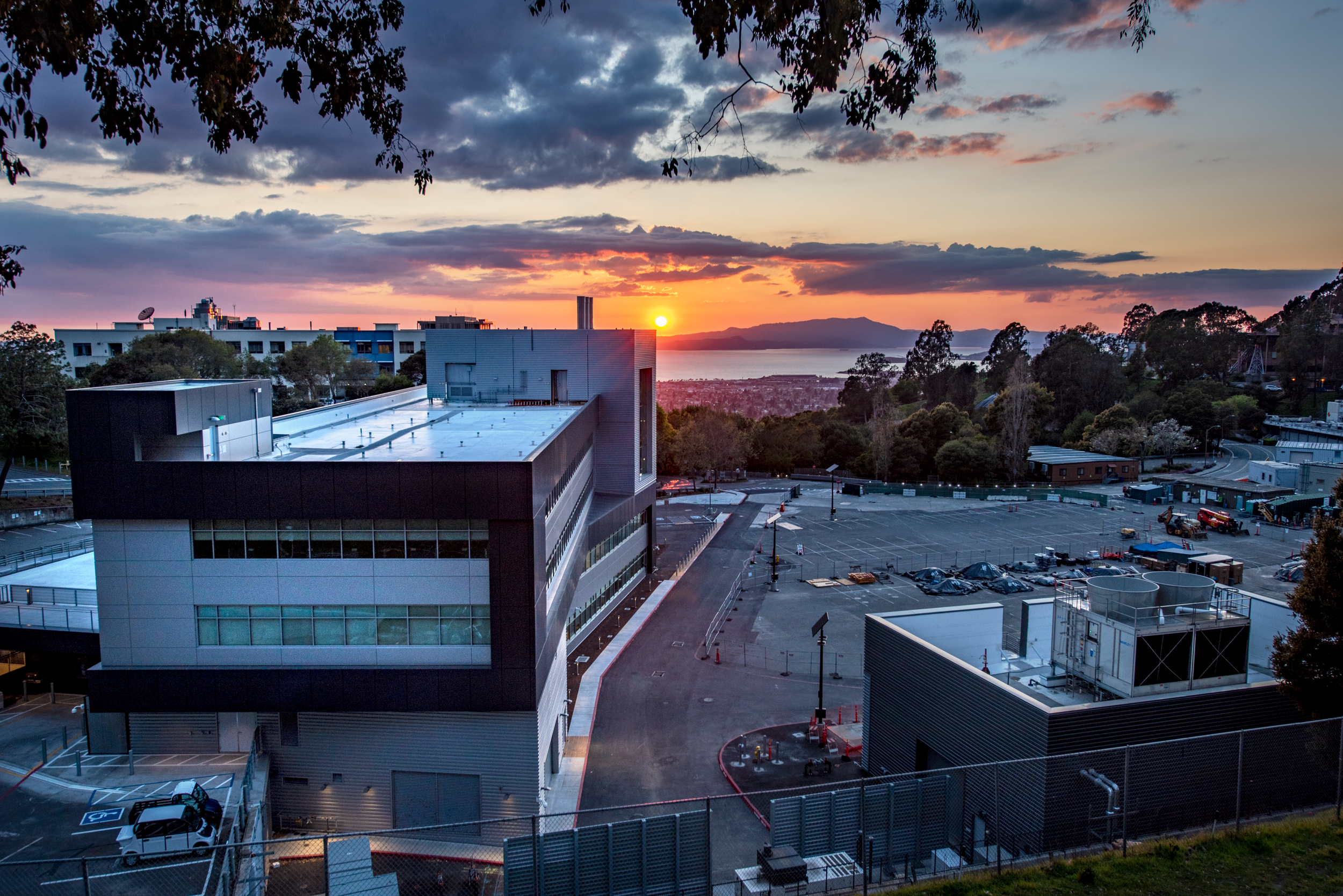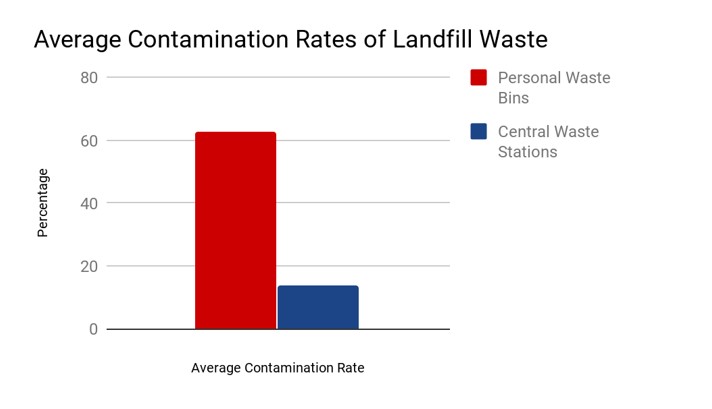 Small changes in routine or habits can have immense impacts. The Integrated Genomics Building (IGB), home of the Joint Genome Institute (JGI) and Systems Biology Knowledgebase (KBase), opened in February 2020 with a pioneering (for Berkeley Lab) waste collection model. Desks at IGB do not have trash cans. Instead, all who work at IGB sort all of their trash, recycling, and compost items at centralized waste stations.
Small changes in routine or habits can have immense impacts. The Integrated Genomics Building (IGB), home of the Joint Genome Institute (JGI) and Systems Biology Knowledgebase (KBase), opened in February 2020 with a pioneering (for Berkeley Lab) waste collection model. Desks at IGB do not have trash cans. Instead, all who work at IGB sort all of their trash, recycling, and compost items at centralized waste stations.
The idea of “kicking the (trash) can” was first brought up in early 2019 before JGI moved from their facility in Walnut Creek to the new building on the Berkeley Lab hill site. “The JGI has had a great relationship with Sustainable Berkeley Lab over the years,” said Christine Naca, IGB/NTI Program Manager and IGB Zero Waste Team Lead. “In January 2019, Brie Fulton, Sustainability Program Manager with Sustainable Berkeley Lab reached out to me to see if JGI would be interested in an opportunity to plan IGB as the first Zero Waste Lab Building on the Lab campus. This sounded like a wonderful goal for our new building.”
After getting the go ahead from JGI Leadership including Director Nigel Mouncey, a volunteer task force gathered to perform a waste audit. They found that their trends were in line with those from the rest of the Lab: waste from personal trash cans contained the highest amount of unsorted recycling and compost. The decision: to make the most impact, eliminate the personal trash bins and ask everyone to take their personal waste to central sorting stations. Audits show that waste diversion improves by around 50% when people sort their own waste.

The Zero Waste team hosted a Kick the Can educational event in March 2019 where staff could voluntarily drop off their trash can, play a game to match the item to the right bin, learn about Zero Waste, and pick up a personal sized compost bin for their desk. By December 2019, when everyone had moved out of the old facility to IGB, most of the staff were used to not having under desk trash cans.
The reasoning used was simple. “It’s so convenient to toss everything into one bin at your desk and have it taken away,” said Christine. “When you eat a snack bar or fruit while watching TV on your couch at home, do you have a trash can next to you? You walk back to the kitchen to throw away your wrapper and compost your fruit right? So why is it different at work?”
IGB opened with only central waste stations and no personal trash cans, and zero waste training was integrated into their orientation. A comprehensive waste audit from January of 2020 showed a 72% diversion rate from the non-lab areas at IGB, compared to a 60% diversion rate in the Lab’s other buildings. For IGB, waste from labs is audited separately from general building operations.
“The IGB Zero Waste Team has helped to create a new standard for zero waste at the Lab,” said Brie Fulton, Berkeley Lab’s Sustainability Program Manager. “In collaboration with the custodial team and Sustainable Berkeley Lab, they were set up as a zero waste building from the day they opened. By piloting no personal trash cans, their diversion numbers have increased and their actions serve as a model for what can happen throughout the Lab. The next step we are taking is analyzing the waste from the labs which cannot be diverted and looking for ways on reuse, reduction, and alternative recycling paths. “
For more on Berkeley Lab’s sustainability efforts, visit Sustainable Berkeley Lab at https://sbl.lbl.gov/.